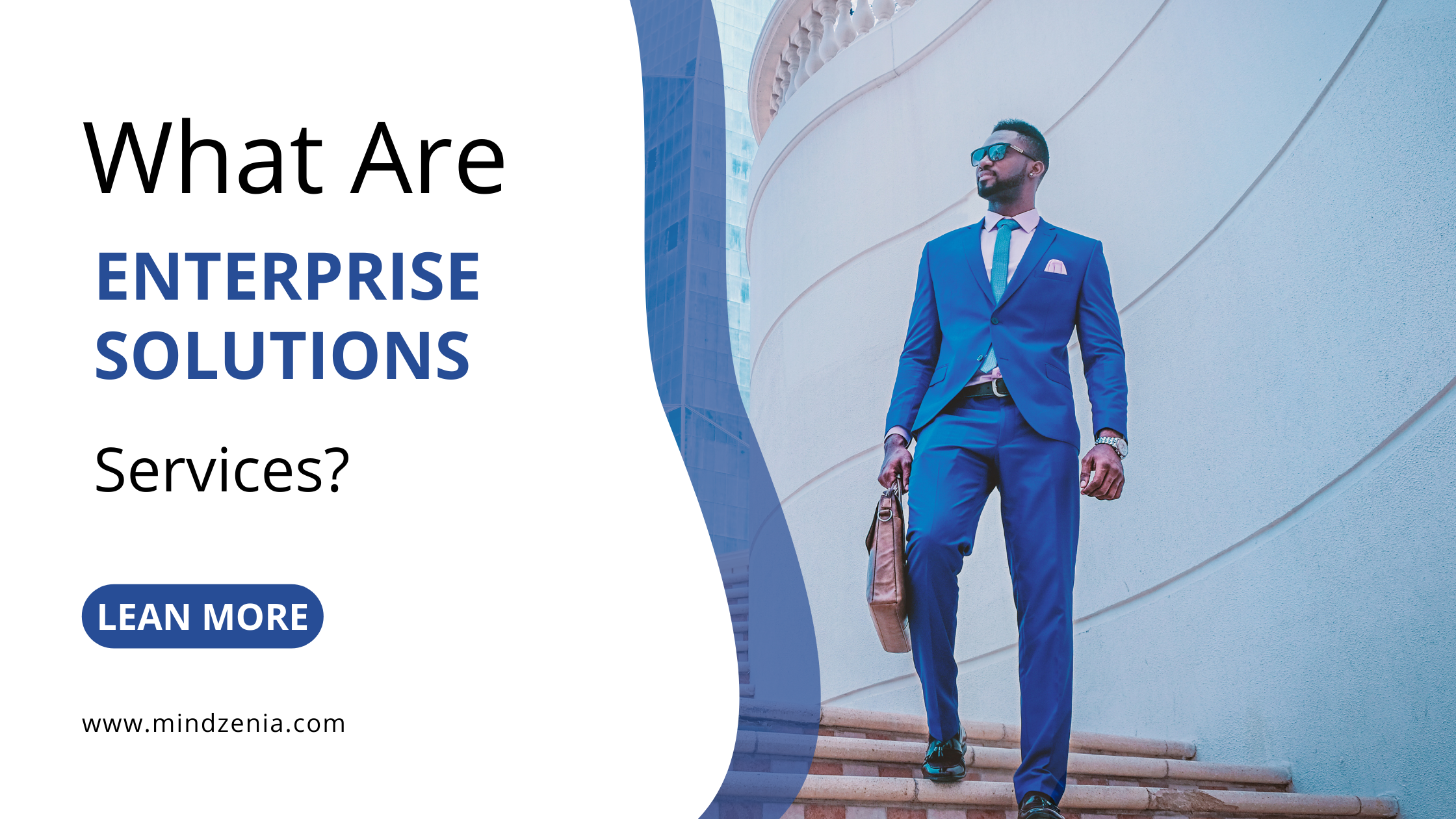
What Are Enterprise Solutions Services? Business Operations for Success
In the ever changing business environment, businesses are always in the lookout for ways of enhancing their performance and productivity. Enterprise Solutions Services provides a number of tools and technologies aimed at meeting these requirements. But what are actually the enterprise solutions services and how can it be helpful for a business? In this blog post, let us look at what enterprise solutions are all about, the kind of services offered and why they are crucial in today’s business world.
Understanding Enterprise Solutions Services
Enterprise Solutions Services refer to an array of software application/technological tools used to address business processes in large organizations. These services work to bring together and enhance a number of processes within an organisation including accounting, personnel, CRM, procurement, and others. This way, using enterprise solutions helps to increase organizational performance, optimize decision-making, and achieve organizational objectives.
Types of Enterprise Solutions Services
- Enterprise Resource Planning (ERP): ERP systems link major business functions together into a single, cohesive architecture. They offer momentaneous information and in most organizations facilitate cross-functional operations of finance, HR, production, and procurement. Common ERP systems include the likes of SAP, Oracle, and Microsoft Dynamics.
- Customer Relationship Management (CRM): CRM systems assist organizations in the proper handling of relationship processes of current and prospective clientele. It allows automating the sales process, marketing, customer relationship management, and data analysis. Some of the most popular CRM systems are salesforce CRM, Hubspot, and Zoho CRM.
- Supply Chain Management (SCM): By definition, SCM solutions involve the best management of all supply chain processes, including the flow of goods, information and cash. These systems improve internal and external transparency, co-ordination and operational performance from the procurement to the delivery of goods. Popular SCM tools include Oracle SCM Cloud, SAP SCM, and JDA Software.
- Human Capital Management (HCM): HCM solutions work towards the effective handling of employees and personnel. These include the areas of recruitment and selection, pay and remuneration, performance appraisal and management, and staff motivation. Some of the leading HCM systems include Workday; ADP; and Oracle HCM Cloud.
- Business Intelligence (BI): BI solutions involve the use of data to derive opinions as shown below. These tools enable decision making based on up-to-date analysis, reports and data in a form of graphs among others. Some of the most widely-known BI solutions are Tableau, Power BI, and Qlik.
- Enterprise Content Management (ECM): ECM systems provide for the governance of an organization’s paperwork and information assets. They afford protection of documents, simplify the access as well as the ability to meet legal demands. Some of the best-known Vendor ECM are IBM FileNet, Microsoft SharePoint and OpenText.
Benefits of Enterprise Solutions Services
- Enhanced Efficiency: This is achieved through the integration of all business functions into a single system so as to maximize the efficiency of business processes. This results in increased efficiency, and therefore lower costs of operation.
- Improved Decision-Making: Enterprise solutions offer timely and pertinent information and insights for decision-making in an organization. Objective information allows effectively managing risks and take correct strategic decisions at the right time.
- Scalability: Enterprise solutions are meant to scale up as your company expands or changes in any way. To your organization: these systems can grow along with your added data, users, and transactions to support your organization’s functions efficiently.
- Compliance and Security: Enterprise solutions have built-in security and compliance capabilities that would allow them to conform to industry standards. They offer features like data protection, authorization mechanisms, audit trails for protecting crucial data.
- Better Customer Experience: CRM and other customer facing solutions improve the customers’ experience through provision of pleasing and satisfying service. This in turn results in increase in customer satisfaction and hence customer loyalty.
- Resource Optimization: HCM and ERP are the systems that improve human and financial resource utilization. They simplify processes, minimize mistakes, and discharge personnel’s time so they can tackle more valuable projects.
The Process of Implementing Enterprise Solutions
- Enhanced Efficiency: This is achieved through the integration of all business functions into a single system so as to maximize the efficiency of business processes. This results in increased efficiency, and therefore lower costs of operation.
- Improved Decision-Making: Enterprise solutions offer timely and pertinent information and insights for decision-making in an organization. Objective information allows effectively managing risks and take correct strategic decisions at the right time.
- Scalability: Enterprise solutions are meant to scale up as your company expands or changes in any way. To your organization: these systems can grow along with your added data, users, and transactions to support your organization’s functions efficiently.
- Compliance and Security: Enterprise solutions have built-in security and compliance capabilities that would allow them to conform to industry standards. They offer features like data protection, authorization mechanisms, audit trails for protecting crucial data.
- Better Customer Experience: CRM and other customer facing solutions improve the customers’ experience through provision of pleasing and satisfying service. This in turn results in increase in customer satisfaction and hence customer loyalty.
- Resource Optimization: HCM and ERP are the systems that improve human and financial resource utilization. They simplify processes, minimize mistakes, and discharge personnel’s time so they can tackle more valuable projects.
Conclusion
Enterprise solutions services are relevant for current companies to optimize their performance, make better decisions, and remain relevant on the market. These services include linking and synchronizing various business activities to offer the solutions required to address intricate operations. Whether adopting ERP systems, CRM systems, or BI tools, business solutions can foster growth, innovation, and profitability. If your organization is ready to take the next step towards operational excellence, consulting enterprise solutions services is one step worth making.
